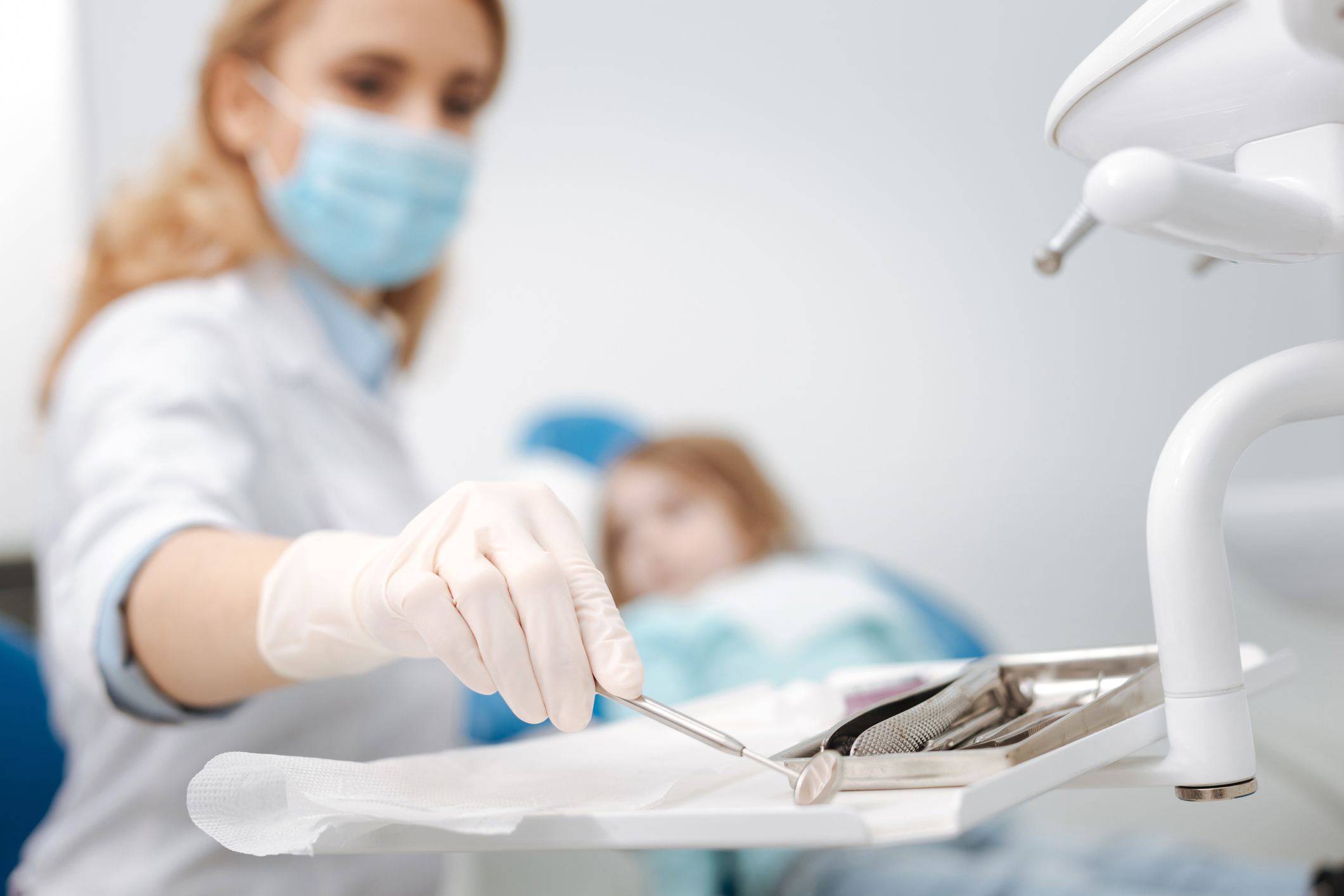5 things dentists really wish you knew about brushing your teeth
It’s not just what you brush with, but how you brush that counts.
Even though we do it twice a day, every day, when it comes to brushing our teeth, it turns out there might still be some pretty important things we’re just not getting right.
Today is World Oral Health Day, and according to a new survey by Simplyhealth, 75% of Brits feel conscious of their smile, mostly down to yellowing of their teeth. So what are we doing wrong? We asked Dr Henry Clover, the chief dental officer at Simplyhealth, to shed some light.
Here’s what you need to know to ensure your oral health doesn’t take a back seat…
1. Electric toothbrushes are only more effective than a manual if you use it properly

“The age-old argument of manual versus electric toothbrush is still rife. Studies have shown that electric toothbrushes with rotating heads can provide a slightly more effective clean, but there’s absolutely no reason why you can’t achieve the same results with a manual toothbrush if you have the right technique. Therefore, it’s much more about how you brush, than what you brush with,” says Dr Clover.
“It sounds simple, but you’d be surprised just how many patients I’ve seen that don’t know the correct way to brush their teeth. [I’d recommend] tilting the bristle tips to a 45-degree angle against the gum line. Move the brush in small circular movements, several times, on all the surfaces (outer, inside, upper and lower) of every tooth. To clean the inside surfaces of the front teeth, tilt the brush vertically and make several small circular strokes with the front part of the brush.”
2. Natural sugar isn’t necessarily better than processed
You may want to rethink sipping fruit juice throughout the day. “Every time we have something sugary to eat or drink, bacteria in our mouths feed on this sugar and produce harmful acids, which can cause tooth decay. It then takes our saliva around an hour to neutralise these acids and return our mouths to normal. This means the more times a day you expose your teeth to sugar, the more you increase your chances of tooth decay,” says Dr Clover.
“While fruit smoothies can seem like a good idea for nutritional benefits, the higher concentration of sugar and acids that come from blending fruit means that every time you sip on a fruit smoothie, your teeth are placed under acid attack for up to an hour. Constantly sipping on these drinks can cause the protective enamel to erode, causing pain and sensitivity. It can also lead to tooth decay.”
3. Your mouth can be the gateway to a host of other, more serious health ailments

“The survey found that 42% of people don’t know that oral health is linked to diseases including dementia, kidney problems and diabetes, which is a worrying statistic. Although a dry mouth can often be down to simple dehydration, a lack of saliva can actually be one of the earliest symptoms of diabetes.
“The condition causes blood vessels in the salivary glands to thicken and slows down the natural production of saliva, making the gums more prone to infections. Other symptoms include excessive thirst, tingling in the hands and feet, frequent urination and blurred vision,” adds Dr Clover. “Bad breath can also be a sign of something more serious, including [gut] disorders such a coeliac disease, and even occasionally liver disease. While some people do suffer worse due to differing bacteria levels, if you’ve tried brushing your teeth and tongue as well as flossing regularly and using breath fresheners, be sure to visit your dentist for advice. They may suggest visiting your GP for a check-up.”
4. Fads, like charcoal toothpaste or oil pulling, have little science behind them
According to the survey, the most-tried oral health trend of 2017 was charcoal toothpaste, alongside oil pulling and whitening strips. But despite a host of celebrity fans and beauty bloggers endorsing these trends, Dr Clover says there’s little evidence to back up their effectiveness.
“The rise of products such as these are due to celebrity endorsements, often through social media, but most of the time they’ve had whitening treatment with a professional, and so the results can be misleading. But while there may be some anecdotal evidence of charcoal’s health benefits, these toothpastes can be very abrasive and many aren’t able to provide the same level of protection against tooth decay as traditional toothpaste, if they don’t contain fluoride.
“The toothpaste you choose should contain the right amount of fluoride for you, as this will help to fight against tooth decay,” Dr Clover adds. “For most adults, this should be between 1350 and 1500ppm. Many toothpastes also help protect against enamel erosion, which can be beneficial for some patients. Always speak to your dental team to find the right products for you.”
5. Flossing is seriously important

Flossing
“Using an interdental brush or floss can clean the tight spaces between your teeth and gums that your toothbrush can’t reach. This helps to remove plaque and bits of food that may otherwise remain in your mouth and lead to tooth decay or gum disease. I recommend you floss at least once a day, either in the morning or the evening. Some dental professionals recommend cleaning between your teeth before you brush, to dislodge particles of food and get rid of plaque, while others suggest doing this after brushing, so anything left can be removed,” says Dr Clover. “If you suffer from sensitive or bleeding gums, you may be tempted to skip cleaning between your teeth for fear of making this worse. However, regularly cleaning between your teeth can actually improve your gum health, and with perseverance and the correct technique, any bleeding should subside.”
The Press Association
Latest posts by The Press Association (see all)
- Prince William pays tribute to last surviving Battle of Britain pilot Paddy Hemingway - March 18, 2025
- What causes an earwax blockage and how it can affect your hearing? - March 14, 2025
- 10 things you didn’t know about hoverflies - March 12, 2025
- When to replace old pillows – and how to dispose of them - March 11, 2025
- 5 things that not drinking enough water is doing to your health - March 11, 2025




















